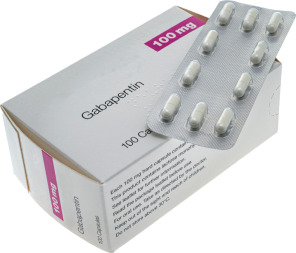Clarissa Chan, PharmD

Gabapentin use within 2 days postsurgery was found to be associated with increased risk of new antipsychotic use, delirium, and pneumonia as compared to no gabapentin use, according to a new study in JAMA Internal Medicine from September 2022 by Chan Mi Park and colleagues. They explored the safety profile of perioperative gabapentin use in patients 65 years and older.

Study significance
The investigators studied perioperative gabapentin use to better understand if nonopioid use in multimodal analgesia would be beneficial in reducing opioid use and its adverse effects to improve pain control safely.
Gabapentin exhibits its action in the same general neural space as benzodiazepines (benzos), barbiturates, some epilepsy medications, and even ethyl alcohol, which all come with their own respective baggage as well, said Mark Garofoli, PharmD, MBA, BCGP, CPE, a clinical assistant professor at West Virginia University School of Pharmacy.
“At some point, both society and health care professionals need to realize that substituting one sedative for another sedative is not exactly the ‘holy grail’ that it's meant to be,” said Garofoli, who was not a part of the research team. “In the neverending quest for opioid-sparing or opioid-replacement pain management medications, one really needs to first consider this thought process.”
This study highlights the reality that many folks will need other appropriate alternative pain management options after surgical procedures.
“We're human, we feel pain; it keeps us away from harmful exposures, but we often need it attenuated to improve our function as well,” he said.
Study design
The retrospective cohort study in-cluded adults 65 years or older who had major surgical procedures—including cardiac, gastrointestinal, genitourinary, orthopedic, neurological (excluding the brain), thoracic, and vascular surgery—at medium-sized hospitals between January 2009 to March 2018. Researchers extracted data using the Premier Healthcare Database approved by Boston's Brigham and Women's Hospital institutional review board.
Patients who died or were discharged before or on postoperative day 2 were excluded from the study, as were patients already taking gabapentin before surgery or had diagnosis codes for psychosis or for any indications that gabapentin may be prescribed—like alcohol use disorder, neuropathic pain, seizure, and social anxiety disorder—or had contraindications for the use of gabapentin like myasthenia gravis. Patients needing critical care measures who were unable to receive gabapentin orally were also excluded from the study.
Patients of various ages, sexes, races and ethnicities, insurance coverage types, hospital admission types, comorbidity diagnoses, and sources (outpatient, emergency department, transfer, or other), were included in the study.
After inclusion and exclusion criteria were applied, out of a total of 967,547 patients, 119,087 of them received gabapentin between surgery day and 2 days postsurgery.
Patients receiving gabapentin were more likely to be female, younger, undergo elective surgeries, and were less likely to have comorbidities than gabapentin nonusers.
Results
While patients 65 years and older who received gabapentin were found to experience fewer adverse effects than nonusers prior to propensity score matching, afterward they were found to be at increased risk of delirium, new antipsychotic use, and pneumonia when compared to gabapentin nonusers after major surgery.
In a subgroup analysis, gabapentin users younger than 80 years were more likely to experience delirium than patients older than 80 years. No association was found with gabapentin use and hospital-related death.

“This study, of almost a million patients whittled down to just under a quarter million patients, showed that this medication works relatively similarly to benzodiazepines, barbiturates, and alcohol caused delirium compared to those not utilizing the medication,” said Garofoli. “I hope that very few, if any, clinicians are surprised by that finding.”
Although new atypical antipsychotic medication utilization and pneumonia were also found to be increased with statistical significance, the appreciable actual raw number difference and clinical applicability were of much less profound impact, said Garofoli.
Key limitation
“There was no detail regarding the gabapentin doses, which is extremely concerning on multiple fronts, yet primarily because, to paraphrase Paracelsus, ‘It's all about the dosage, baby!’” said Garofoli.
Gabapentin exhibits saturated pharmacokinetic absorption properties, meaning that the higher the dose, the lower the percentage of absorption. Gabapentin is one of the “poster kids” for “start low, go slow” dosing, as dosage-related adverse effects can often cause a patient to no longer utilize the medication, said Garofoli.
“Thus, not discussing the observed gabapentin doses is a significant limitation of this article,” he noted.
Takeaways
Pharmacists should carefully weigh the benefits versus risks of perioperative gabapentin use especially in older adults. An individualized treatment plan is advised by the authors of the study to reduce the risk of immediate harms when using multimodal analgesia to help patients improve their recovery.